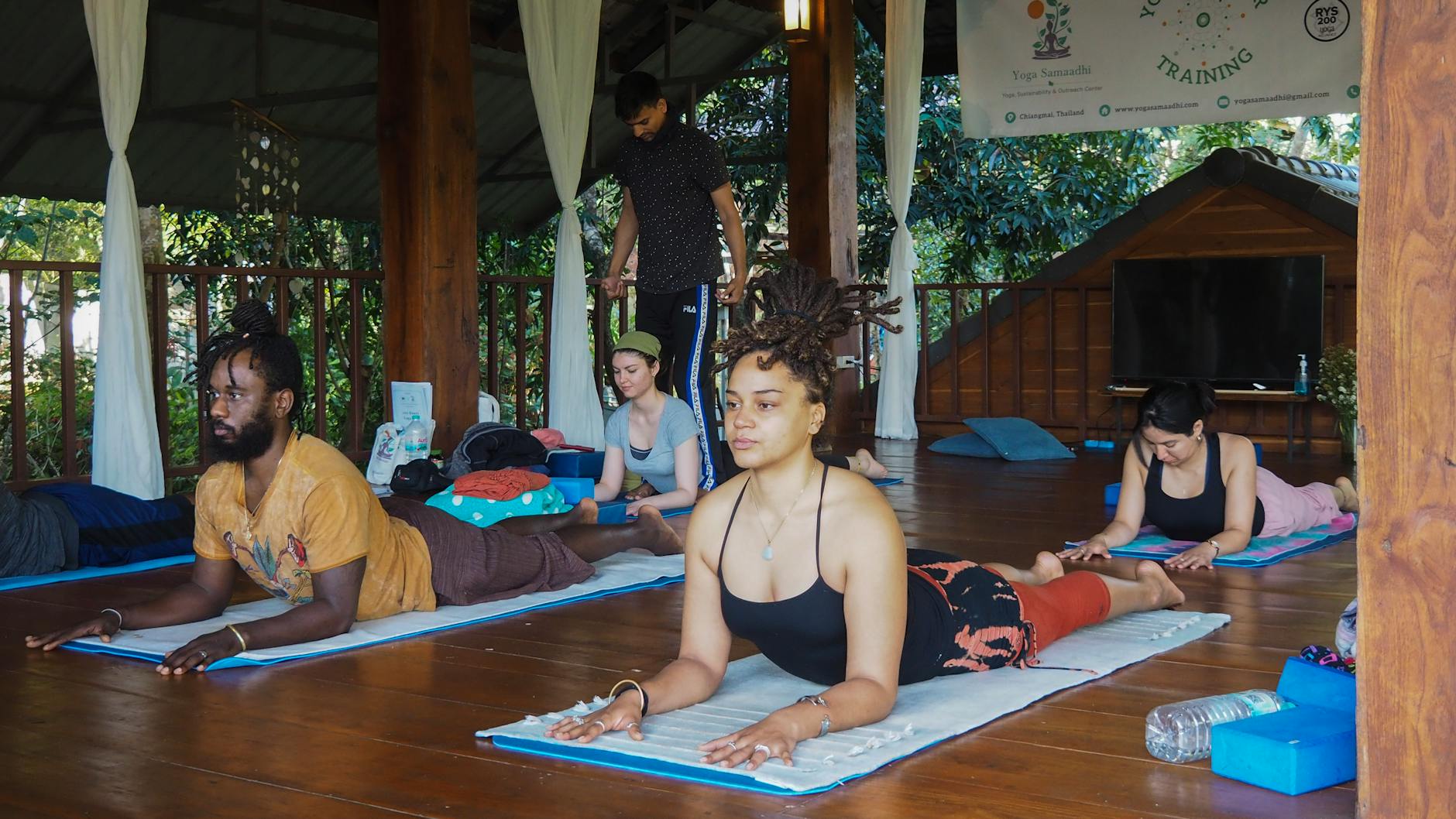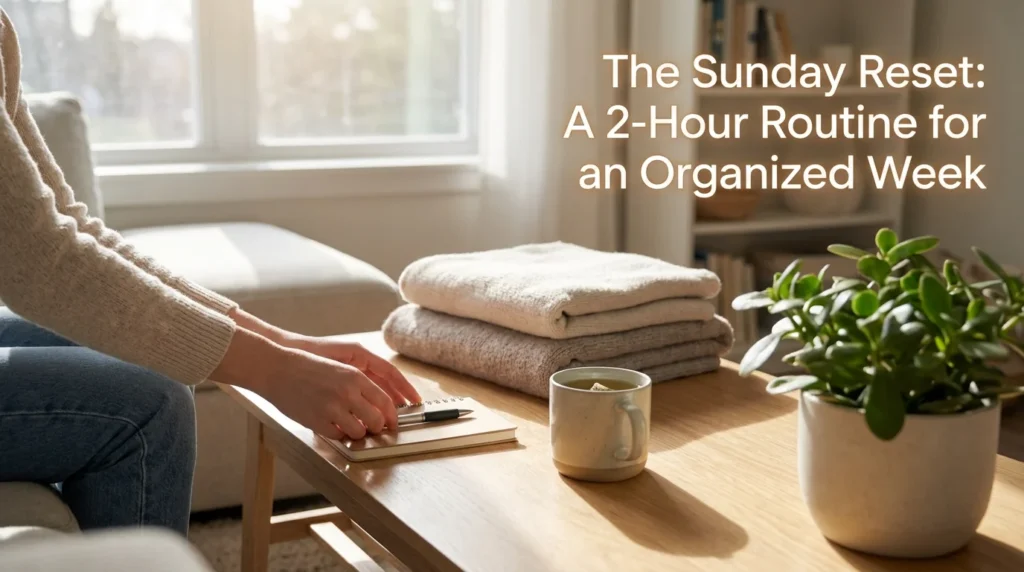
Are you feeling overwhelmed, stressed, and burnt out? 😫 In today’s fast-paced world, it’s easy to neglect our own well-being as we juggle work, relationships, and daily responsibilities. But here’s the truth: taking care of yourself isn’t selfish—it’s essential.
Imagine waking up each day feeling refreshed, energized, and ready to tackle whatever comes your way. 🌟 A well-crafted self-care routine can transform your life, boosting your physical health, mental clarity, and emotional resilience. But with so much advice out there, how do you create the perfect self-care regimen that works for you?
In this comprehensive guide, we’ll explore the best self-care practices, covering everything from physical wellness to mental health, social connections, and creating an nurturing environment. We’ll dive into time management strategies and help you develop personalized self-care tactics that fit seamlessly into your unique lifestyle. Get ready to embark on a journey of self-discovery and empowerment as we unlock the secrets to your ultimate self-care routine!
Understanding Self-Care

Defining self-care and its importance
Self-care is a deliberate practice of taking action to preserve or improve one’s physical, mental, and emotional health. It’s not just about pampering yourself; it’s a crucial component of overall well-being. Self-care involves recognizing your needs and taking steps to meet them, which can range from basic activities like getting enough sleep to more complex practices like setting boundaries in relationships.
| Aspect of Self-Care | Examples |
|---|---|
| Physical | Exercise, healthy eating, adequate sleep |
| Mental | Meditation, learning new skills, reading |
| Emotional | Journaling, therapy, practicing gratitude |
| Social | Spending time with loved ones, joining clubs |
Benefits of a consistent self-care routine
Implementing a regular self-care routine can yield numerous benefits:
- Reduced stress and anxiety
- Improved physical health
- Enhanced mental clarity and focus
- Increased self-esteem and confidence
- Better work-life balance
- Strengthened relationships
- Improved resilience to life’s challenges
Addressing common misconceptions
Despite its importance, self-care is often misunderstood. Let’s debunk some common myths:
- Self-care is selfish: In reality, taking care of yourself enables you to better care for others.
- Self-care is time-consuming: Even small, consistent actions can make a significant impact.
- Self-care is expensive: Many effective self-care practices are free or low-cost.
- Self-care is only for stress relief: While it helps manage stress, self-care is about overall well-being.
Now that we’ve established a clear understanding of self-care, let’s explore specific physical practices that can form the foundation of your self-care routine.
Physical Self-Care Practices

Establishing a healthy sleep routine
A consistent sleep routine is crucial for overall health and well-being. Aim for 7-9 hours of quality sleep each night. Here’s a simple routine to improve your sleep:
- Set a consistent bedtime and wake-up time
- Create a relaxing pre-sleep ritual
- Avoid screens 1-2 hours before bed
- Keep your bedroom cool, dark, and quiet
Nourishing your body with balanced nutrition
Proper nutrition is the foundation of physical self-care. Focus on a diet rich in:
- Fruits and vegetables
- Whole grains
- Lean proteins
- Healthy fats
| Nutrient | Benefits | Sources |
|---|---|---|
| Folic Acid | Supports cell growth | Leafy greens, legumes |
| Carotenoids | Boost immune system | Carrots, sweet potatoes |
| Omega-3 | Heart health | Fatty fish, chia seeds |
Incorporating regular exercise
Physical activity is essential for maintaining health and reducing stress. Aim for at least 150 minutes of moderate exercise per week. Options include:
- Yoga for flexibility and stress relief
- Cardio for heart health
- Strength training for muscle and bone density
Practicing good hygiene
Good hygiene habits contribute to overall health and self-esteem. Maintain:
- Regular handwashing
- Daily showers or baths
- Proper dental care
- Clean and tidy living spaces
By incorporating these physical self-care practices into your routine, you’ll be laying a strong foundation for overall wellness. Next, we’ll explore how to cultivate mental and emotional well-being to complement these physical practices.
Mental and Emotional Well-being

Implementing mindfulness and meditation
Mindfulness and meditation are powerful tools for enhancing mental and emotional well-being. These practices can help reduce stress, improve focus, and promote overall happiness. Here’s a simple guide to get started:
- Start small: Begin with 5-10 minutes of daily practice
- Find a quiet space: Choose a comfortable, distraction-free area
- Focus on your breath: Pay attention to your inhales and exhales
- Use guided meditations: Try apps like Headspace or Calm for structured sessions
Journaling for self-reflection
Journaling is an excellent way to process emotions, gain clarity, and track personal growth. Consider these journaling techniques:
- Gratitude journaling: List three things you’re thankful for each day
- Stream of consciousness writing: Write without stopping for 10 minutes
- Prompt-based journaling: Use specific questions to guide your reflection
Setting boundaries and learning to say no
Establishing healthy boundaries is crucial for maintaining emotional well-being. Here’s a table to help you identify and set boundaries:
| Area of Life | Boundary Example | How to Communicate |
|---|---|---|
| Work | No emails after 7 PM | “I’m available during work hours, but after 7 PM, I focus on personal time.” |
| Relationships | Limit social engagements | “I appreciate the invitation, but I need some downtime this weekend.” |
| Personal | Protect your self-care time | “I have a commitment to my yoga practice on Saturdays.” |
Engaging in hobbies and creative activities
Pursuing hobbies and creative endeavors can boost mood and reduce stress. Some ideas include:
- Painting or drawing
- Playing a musical instrument
- Gardening
- Cooking or baking
- Photography
Seeking professional help when needed
Remember, it’s okay to ask for help. Mental health professionals can provide valuable support and guidance. Consider reaching out if you’re experiencing persistent feelings of sadness, anxiety, or overwhelm. Many health insurance plans cover mental health services, making professional help more accessible.
Social Connections and Relationships

Nurturing meaningful friendships
Building and maintaining strong friendships is a crucial aspect of self-care. Meaningful friendships provide emotional support, reduce stress, and contribute to overall well-being. Here are some ways to nurture these relationships:
- Regular communication: Stay in touch through calls, texts, or video chats
- Plan regular meet-ups: Schedule coffee dates, walks, or shared activities
- Be a good listener: Show genuine interest in your friends’ lives
- Offer support: Be there for your friends during both good and challenging times
| Benefits of Nurturing Friendships | Ways to Strengthen Bonds |
|---|---|
| Reduced stress and anxiety | Share experiences |
| Improved mood and self-esteem | Practice active listening |
| Enhanced sense of belonging | Show appreciation |
| Increased resilience | Be reliable and honest |
Spending quality time with family
Family relationships play a significant role in our overall well-being. Dedicating time to family strengthens bonds and provides a sense of connection and support. Consider these ideas:
- Establish regular family meals
- Plan family outings or game nights
- Create shared traditions or rituals
- Engage in open and honest communication
Joining support groups or community activities
Participating in community activities and support groups can expand your social network and provide a sense of belonging. These connections offer opportunities for personal growth and shared experiences. Some options include:
- Local volunteer organizations
- Hobby-based clubs or groups
- Fitness classes or sports teams
- Professional networking events
By actively nurturing social connections and relationships, you create a strong support system that contributes to your overall self-care routine. These relationships provide emotional support, reduce stress, and enhance your quality of life. As we move forward, we’ll explore how to create an environment that supports your self-care efforts.
Creating a Self-Care Environment

Decluttering and organizing your living space
Decluttering and organizing your living space is a crucial step in creating a nurturing self-care environment. A tidy space can significantly impact your mental well-being and overall stress levels. Here are some effective strategies to get started:
- Start small: Begin with one room or area at a time
- Use the four-box method: Keep, Donate, Trash, and Relocate
- Implement the “one in, one out” rule
- Invest in storage solutions
Incorporating calming elements into your surroundings
Once you’ve decluttered, it’s time to introduce elements that promote relaxation and peace. Consider the following:
- Soft lighting (e.g., salt lamps, dimmable LEDs)
- Natural elements (plants, wood accents)
- Soothing colors (blues, greens, neutrals)
- Comfortable textures (plush throws, soft pillows)
Establishing a dedicated self-care area
Creating a specific space for self-care activities can help you maintain consistency in your routine. Here’s a comparison of different self-care spaces:
| Space Type | Benefits | Suitable Activities |
|---|---|---|
| Meditation Corner | Promotes mindfulness, reduces stress | Meditation, deep breathing exercises |
| Reading Nook | Encourages relaxation, stimulates mind | Reading, journaling |
| Home Gym Area | Improves physical health, boosts endorphins | Yoga, strength training, stretching |
| Spa-like Bathroom | Enhances relaxation, promotes self-pampering | Bubble baths, skincare routines |
Remember, your self-care environment should reflect your personal preferences and needs. Experiment with different elements to find what works best for you. With a well-designed self-care space, you’ll be more likely to prioritize and enjoy your self-care routine.
Time Management for Self-Care

Prioritizing self-care activities
In the hustle and bustle of daily life, it’s crucial to prioritize self-care activities. Start by creating a list of self-care practices that resonate with you, then rank them based on their impact on your overall well-being. Consider the following categories:
- Physical health
- Mental and emotional wellness
- Social connections
- Personal growth
| Priority | Self-Care Activity | Impact |
|---|---|---|
| High | Daily exercise | Improves physical health, releases endorphins |
| Medium | Meditation | Reduces stress, enhances mental clarity |
| Low | Hobby time | Provides enjoyment, boosts creativity |
Creating a realistic self-care schedule
Once you’ve prioritized your self-care activities, it’s time to integrate them into your daily routine. Be realistic about the time you can dedicate to self-care:
- Start small: Begin with 15-30 minutes of self-care daily
- Use time-blocking: Schedule specific time slots for self-care activities
- Combine activities: Pair self-care with daily tasks (e.g., listening to a podcast while commuting)
- Be flexible: Allow room for adjustments in your schedule
Learning to delegate and ask for help
Remember, effective self-care often involves knowing when to seek support. Delegating tasks and asking for help can free up valuable time for your self-care routine:
- Identify tasks that can be delegated at work or home
- Communicate your needs clearly to family, friends, or colleagues
- Consider outsourcing certain responsibilities (e.g., hiring a cleaner or using meal delivery services)
- Join support groups or seek professional help when needed
By mastering these time management strategies, you’ll be better equipped to maintain a consistent and effective self-care routine, leading to improved overall health and well-being.
Personalized Self-Care Strategies

Identifying your unique self-care needs
To create a personalized self-care routine, it’s essential to identify your unique needs. Consider the following aspects:
- Physical health
- Mental well-being
- Emotional state
- Social connections
- Spiritual fulfillment
Use this self-assessment table to evaluate your current state:
| Aspect | Current State (1-10) | Areas for Improvement |
|---|---|---|
| Physical | ||
| Mental | ||
| Emotional | ||
| Social | ||
| Spiritual |
Experimenting with different self-care techniques
Once you’ve identified your needs, it’s time to explore various self-care practices. Here are some ideas to get you started:
- Physical: Yoga, jogging, or strength training
- Mental: Meditation, journaling, or learning a new skill
- Emotional: Art therapy, music therapy, or talking to a therapist
- Social: Joining a club, volunteering, or scheduling regular catch-ups with friends
- Spiritual: Practicing mindfulness, attending religious services, or spending time in nature
Adapting your routine as life changes
Life is dynamic, and your self-care routine should be too. Regularly reassess your needs and adjust your strategies accordingly. This flexibility ensures that your self-care practices remain effective and relevant to your current life situation.
Remember, self-care is not one-size-fits-all. What works for others may not work for you, and that’s okay. The key is to find what resonates with you and makes you feel your best. By tailoring your self-care routine to your unique needs and remaining open to change, you’ll create a sustainable practice that supports your overall health and well-being.

Incorporating self-care into your daily routine is essential for maintaining overall well-being and leading a balanced life. By focusing on physical practices, mental and emotional health, social connections, and creating a supportive environment, you can develop a personalized self-care strategy that works best for you. Remember to prioritize time management and be flexible in your approach, adapting your self-care routine as needed.
Ultimately, the best self-care routine is one that you can consistently maintain and enjoy. Start small, be patient with yourself, and gradually build habits that nourish your body, mind, and soul. By investing in your own well-being, you’ll be better equipped to face life’s challenges and thrive in all aspects of your life.


